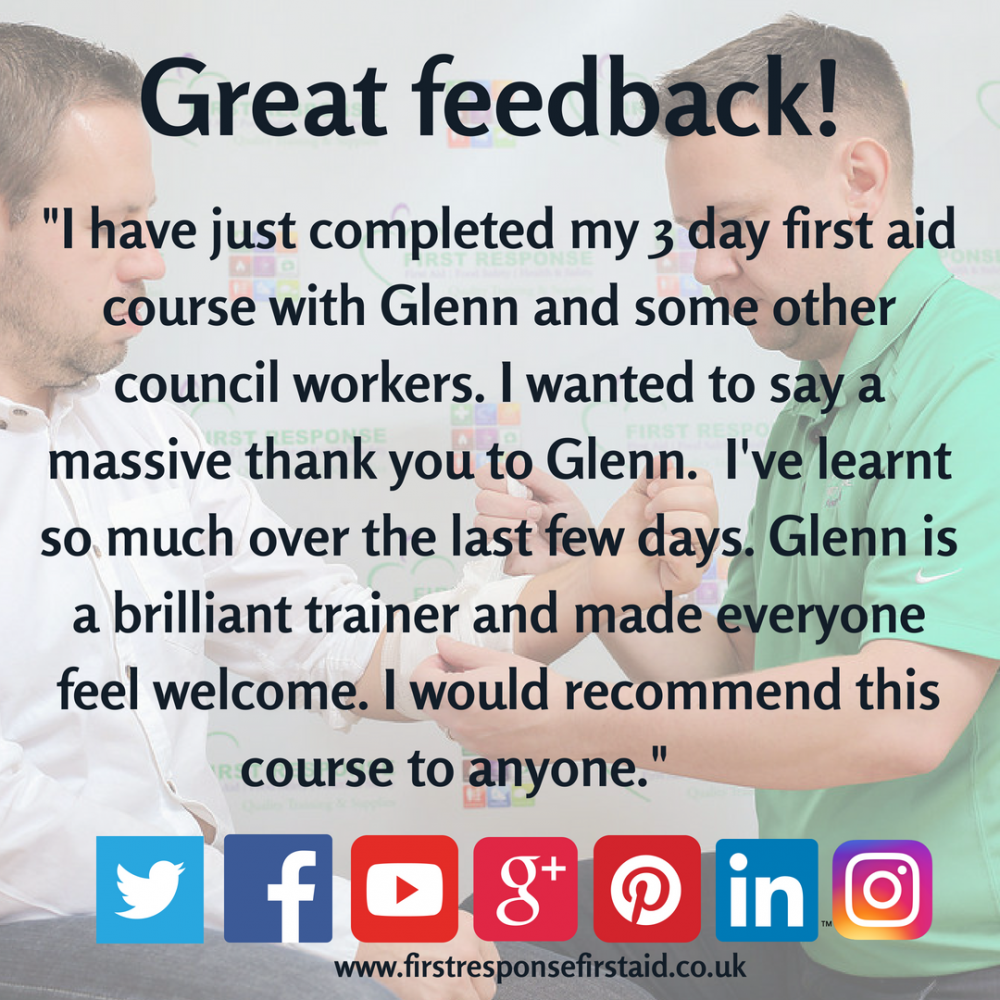Looking after your heart this February (and those you love!) Part 1
Looking after your heart this February (and those you love!)
It’s February and our thoughts may turn to love and romance with Valentine’s day just around the corner. At First Response First Aid we are thinking about heart-health of a different kind, how to spot someone having a heart attack and what to do, but also how we can look after our hearts and the 7 things we can do to keep them healthy. (in part 2)
According to the British Heart Foundation, heart and circulatory disease causes 26% of all deaths in the UK; that’s nearly 160,000 deaths each year, an average of 435 people each day or one death every three minutes.
Do you know the signs to look out for? Would you know what to do?
Heart attacks happen if our arteries become blocked, symptoms can vary from person to person but here are some signs to look out for:-
- chestpain, like a feeling of pressure, tightness or a squeezing in the centre of the chest
- pain in other parts of the body, it may feel as if the pain is travelling from the chest to the arms, jaw, neck, back and abdomen
- light-headedness
- sweating
- breathlessness
- feeling nauseous or being sick
- an overwhelming sense of anxiety (similar to having a panic attack)
- coughing or wheezing
- they may look paler than normal and their skin may feel clammy.
Call 999 and keep the person resting while you wait for the ambulance to arrive.
If the person appears not to be breathing or if they are not moving and they don't respond to any stimulation, such as being touched or spoken to then they may have had gone into cardiac arrest. Cardiac arrest is a serious medical emergency, where the heart stops pumping blood around the body. Unless treated immediately, it leads to death within minutes. The overall survival rate in the UK is less than 1 in 10, but performing CPR can double the chances of survival in some cases (according to the British Heart Foundation.)
If you think somebody has gone into cardiac arrest and you have access to a device called an automated external defibrillator (AED), use it while you wait for the ambulance. An AED is a safe, portable electrical device that some large organisations keep as part of their first aid equipment. The AED helps to establish a regular heartbeat during a cardiac arrest by monitoring the person's heartbeat and giving them an electric shock if necessary.
If there is not an AED available, you should start cardio pulmonary resuscitation (CPR) while waiting for the ambulance. We teach how to do this on all our first aid courses and paediatric first aid courses, as well as how to use an AED. Please contact us to book. The second part of this article can be found here.





















.png)















